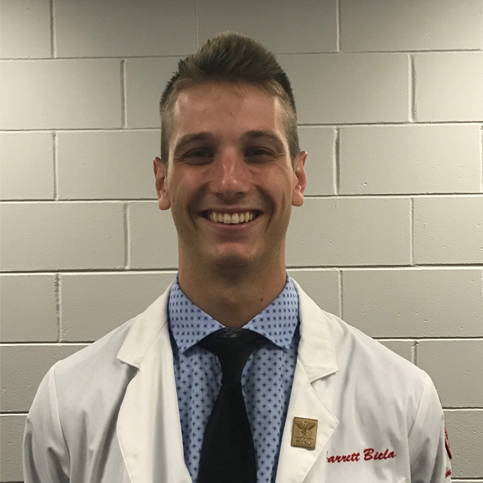Optometry
Optometry is a growing field with increasing demand as the population is more aware of the importance of prevention and proper healthcare, as the overall population ages and as access to health insurance opens. According to the Association of Schools and Colleges of Optometry, optometrists perform comprehensive examinations of both the internal and external structures of the eye; treat eye diseases such as glaucoma and ulcers; and diagnose, manage and refer systemic diseases such as hypertension and diabetes. Optometrists should not be confused with ophthalmologists, who are physicians that perform eye surgery as well as diagnose and treat the eye.
NOTE: Pre-optometry is not a major or a program, and The University of Tampa does not have an optometry school. Pre-optometry is an interest or path students choose that advisors help guide them on their journey towards applying to optometry school.
Preparing for Optometry School
Earn a Bachelor’s degree
Optometry school is a graduate program; to become eligible to apply to optometry school students should earn a bachelor's degree and take specific pre-requisites (classes that optometry schools require). At UT, students can earn a bachelor's degree and take pre-requisite courses. They will need to choose a major, as pre-optometry is not a major or a program at UT.
Students who are interested in going to optometry school typically major in biology, chemistry, or biochemistry. These majors include most of the required courses for entrance into optometry programs and will help prepare students for the Optometry Admission Test (OAT). However, other degrees can also prepare students for health professions; thus students are encouraged to major in the field where they excel and should consult the pre-health professions advisor about course work.
Basic pre-requisite* (Each optometry school has its own set of pre-requisites, and students need to research the admission requirements of each school to which they are intending to apply.) courses required for optometry school:
- Biology I (1) and II (2) with labs
- General Chemistry I (1) and II (2) with labs
- Organic Chemistry I (1) and II (2) with labs
- Physics I (1) and II (2) with labs
- Calculus
- Microbiology, Biochemistry, and or Anatomy may be required depending on the school
*Each optometry school has its own set of pre-requisites, and students need to research the admission requirements of each school to which they are intending to apply. Search school-specific pre-requisites.
Build an extensive record of relevant experiences
- Shadow an optometrist – gain knowledge of the field and confirm this is your passion
- Community service/volunteer – students should have a passion for helping others; service could be both inside and outside of medical/clinical settings
- Leadership ability – roles on and off-campus
Optometry Admission Test (OAT)
- The OAT is required for all U.S. optometry schools. It is about 5 hours long and costs $505.
- Completion of the basic pre-requisites is needed to be prepared to take the OAT.
- Students who are on the traditional path of going to optometry school directly following graduation from UT should be prepared to take the OAT in the late spring/early summer of their junior year.
- Take the OAT before applying to optometry schools.
Optometry school applications
- Students apply to optometry school a full year before they intend to start (summer of junior year through fall of senior year).
- Applications open every summer and each school has its own deadline.
- Most optometry schools have rolling admissions, so they will review student files as soon as they are complete and submitted. Applicants are encouraged to apply early!
- Take a look now at what is expected of the application: OptomCAS application
Optometry School Information and Beyond
- A traditional optometry school program is four years long, and externships are normally incorporated into the final year of school.
- There is only one optometry school in Florida:
- After completion, the students earn a Doctor of Optometry (OD).
- Students are not required to complete residency training post-graduation to practice; however, some places of employment may require a residency program, which is usually one-year long.
Pre-Health Professions Committee (PHPC)
Members of the Department of Chemistry, Biochemistry, and Physics and the Department of Biology offer guidance to students and write letters of recommendation, known as Committee Letters, through UT's Pre-Health Professional Committee (PHPC).
Contact
Pre-professional advising has a dedicated program specialist to help students prepare for professional school in the health sciences. The specialist would like to see all pre-health students early on to ensure they are on the path to success. Please email Jackie Mikulski to inquire about the next steps in the pre-health advising program.
Additional Resources
Explore Health Careers - Optometrist
Association of Schools and Colleges of Optometry

